Open Water Scuba Diving License
Getting your is more than just a certification; it’s an open door to adventure. The thrill of submerging into the blue abyss, knowing that you are now part of the underwater world, is something that will stay with you forever.
When I first decided to pursue this license, I had no idea how life-changing it would be. The course isn’t just about ticking boxes or passing exams – it’s an immersion (pun intended) into a new way of seeing the world. You start by learning the fundamentals, like:
- Breathing underwater: Trust me, the first breath you take with a regulator is something you’ll never forget.
- Buoyancy control: It’s like learning how to fly, but in slow motion.
- Safety procedures: From buddy checks to emergency ascent skills, safety becomes second nature.
The training is broken down into three key components: theory, confined water dives (usually in a pool), and open water dives. The theory part teaches you everything from dive physics to environmental awareness, while the pool sessions let you practice your skills before heading into the open water.
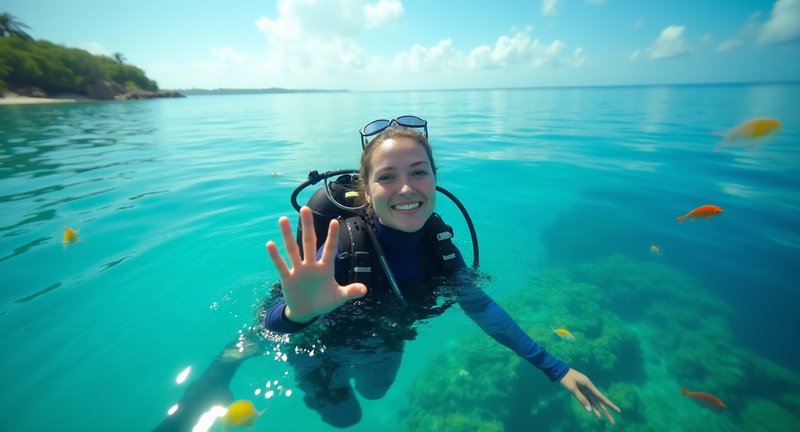
For the grand finale, the open water dives. Picture this: descending into the deep blue, the sun’s rays fading into cool shades of turquoise, schools of fish dancing around you, and the only sound you hear is your own breath. It’s surreal, and it all becomes possible because you’ve earned your .
So, if you’re ready for the plunge (both figuratively and literally), grab your fins, mask, and the courage to explore the 70% of the Earth most people never get to see.
Securing Your Open Water Scuba Diving License
The adventure of stepping into the world of diving begins with a bit of patience and a whole lot of excitement. When I first dipped my toes into the process, it wasn’t just about paperwork or ticking off tasks. It was about immersing myself in a realm beneath the waves, committing to learning skills that would allow me to navigate this incredible underwater space safely.
Each step along the journey was a revelation. From learning to control my breath in ways that defied everything I knew on land, to understanding the subtle nuances of buoyancy, I realized that this wasn’t just a hobby – it was a transformation. The ocean itself becomes your teacher, and trust me, it’s as humbling as it is thrilling.
Of course, there’s a bit of bureaucracy involved, but don’t let that scare you. Honestly, the practical training – hands down – was the best part. Picture yourself not in a classroom but in crystal-clear waters, guided by an expert, building confidence with every dive.
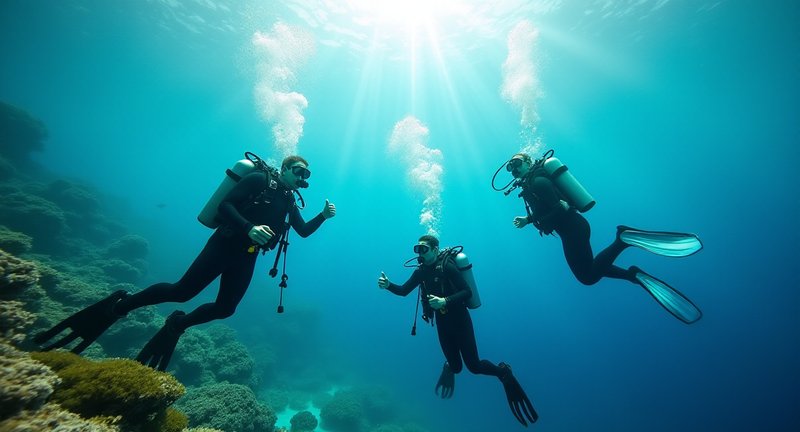
The final assessment was more like a celebration than a test. You get to show off everything you’ve learned, proving to yourself that you belong in this watery world. I remember surfacing after that last dive, feeling a deep connection to the ocean, and a sense of freedom that I hadn’t anticipated.
If you’re thinking about it, know that it’s more than just getting certified. It’s a journey into a space that very few people truly get to experience in its full beauty. And once you’re in, the ocean will always call you back.
Introduction to Your Diving Journey
Stepping into the world beneath the waves is like discovering an entirely new planet. Your diving journey begins the moment you feel that first tug of curiosity, that yearning to explore what lies beneath the shimmering surface. I remember when I felt it too, and let me tell you, it’s a feeling that never leaves.
The underwater world is full of wonders, but also full of respect respect for the ocean and for yourself. Before you can fully immerse in the deep, there’s a certain level of skill and preparation needed. You’ll be guided through the basics, from how to breathe underwater to how to move with the grace of a fish in the sea.
I can still recall my first plunge. The nervous excitement, the sound of my breath echoing through the regulator. You might think it’s overwhelming, but the training helps you turn that nervousness into focus. With each dive, you build confidence, and soon enough, the underwater realm will feel like a second home.
Don’t rush the process. There’s so much to absorb, and the more comfortable you become, the more incredible your experiences will be. The ocean waits for no one, but it welcomes those who come prepared, and your journey into the deep will be all the more rewarding because of it.
What is a Scuba Diving Certification?
A scuba diving certification is more than just a ticket to explore the underwater world. It’s a passport to adventure, a gateway to the ocean’s depths, and a key to unlock marine mysteries that most never get to see. When you earn this certification, it signals that you’ve completed the training needed to dive safely and responsibly.
The journey to certification starts in the classroom, where you’ll learn the essential theory behind scuba diving. This includes mastering your buoyancy, understanding underwater physics, and recognizing the importance of keeping your breathing steady under pressure literally.
Then comes the pool sessions, where you’ll start to feel the magic. The first time you breathe underwater is surreal, like entering a different universe. But it’s not all fun these practice sessions prepare you to handle unexpected situations that could happen beneath the surface.
The final step is your open-water dives. This is where everything clicks. You descend into the blue, surrounded by marine life, and suddenly, you’re part of the underwater ecosystem, not just a visitor. The confidence you gain with each dive is priceless, and you feel a deeper connection to the ocean with every stroke.
But don’t worry, the certification doesn’t mean you’re now an expert. It’s just the beginning, opening the door to endless learning and experiences. Each dive teaches you something new, and you quickly realize that the sea, with its beauty and complexity, will always have more to offer.
Benefits of Getting Certified for Underwater Exploration
When I first dipped my toes into the vibrant underwater world, I had no idea how a simple certification could transform my adventures. Getting certified for underwater exploration is like acquiring a passport to a realm filled with breathtaking wonders. Here’s why I believe diving certification is an essential rite of passage for any aspiring underwater explorer.
1. Safety First
Diving might seem as easy as breathing, but there’s an art and science to it. Through certification, I learned crucial safety protocols, like:
- Proper buoyancy control
- Emergency ascent procedures
- Equipment handling
These skills not only kept me safe but also enhanced my confidence while exploring the deep blue.
2. Unleashing the Wonders of the Ocean
Being certified opens doors to some of the most mesmerizing dive sites. Imagine swimming alongside vibrant schools of fish or gliding over coral reefs, knowing you have the skills to navigate the aquatic landscape responsibly.
3. Community Connection
Diving brings together a unique tribe of enthusiasts. Certification introduces you to fellow adventurers who share your passion. It’s a fantastic way to forge friendships, exchange stories, and even plan future escapades.
4. Personal Growth
Beyond the thrill of exploration, certification fosters personal development. I’ve gained a profound appreciation for marine ecosystems and learned to respect the delicate balance of life beneath the waves. Plus, pushing through challenges like mastering tricky techniques has bolstered my self-esteem.
In essence, diving certification isn’t just about ticking a box; it’s a gateway to endless possibilities and unforgettable experiences. So, gear up, dive in, and embrace the adventure that awaits beneath the surface!
Understanding the Open Water Diver Course
Diving into the depths of the ocean is an experience like no other. When I first embarked on the journey of becoming a certified diver, I was filled with excitement and a sprinkle of apprehension.
The course itself is a delightful blend of theory and practice. You’ll find yourself learning about the physics of diving, the equipment you’ll use, and the marine life you might encounter. Trust me, that little handbook can feel like a treasure map leading you to a hidden world.
Then comes the time to hit the water. The first time I submerged my body, it felt like stepping into a different realm, where gravity loses its grip. You’ll practice skills that seem mundane on land but transform underwater, like equalizing your ears and controlling your buoyancy.
As you float among vibrant coral reefs, you’ll witness the magic of the ocean firsthand. I remember the thrill of encountering a curious sea turtle, gliding gracefully alongside me. These moments remind you of the beauty of our planet and the importance of preserving it.
Safety is paramount throughout the course. Instructors are not just teachers; they’re guardians of the underwater world, ensuring you’re equipped to explore safely. You’ll leave the course not only as a skilled diver but also with a newfound respect for the ocean.
So, if you’re pondering whether to take the plunge, I say go for it. The wonders of the underwater world await, and who knows what adventures lie beneath the waves?
Course Prerequisites: What You Need to Know
As I prepared for my scuba diving adventure, I quickly learned that certain prerequisites were essential to ensuring a smooth journey beneath the waves. If you’re eyeing that first splash into the blue, here’s what you’ll need to consider:
-
Medical Fitness: Before plunging into the depths, it’s crucial to evaluate your health. Many dive shops require a medical statement confirming your fitness to dive. If you have pre-existing conditions, a doctor’s clearance may be necessary. Don’t skimp on this step; your safety is paramount!
-
Age Requirements: Most diving courses set age limits. Generally, participants must be at least 10 to 12 years old, depending on the certification organization. Younger divers can often engage in specialized courses with parental consent, making it an exhilarating family affair.
-
Basic Swimming Skills: You don’t need to be Michael Phelps, but comfort in the water is non-negotiable. Proficiency in swimming being able to float, tread water, and navigate a pool will significantly enhance your experience.
-
Commitment to Learning: Scuba diving is as much about knowledge as it is about adventure. A willingness to absorb information about equipment, safety procedures, and marine life will set the stage for an enjoyable experience. Dive into the theory; it will pay off once you’re submerged!
-
Gear Preparation: While many schools provide gear, understanding basic equipment usage is advantageous. Familiarize yourself with masks, fins, and buoyancy control devices. Knowing what works for you before getting into the water can make a world of difference.
Embarking on this underwater escapade is more than just the thrill of bubbles; it’s about preparation, respect for the ocean, and an eagerness to discover new worlds. Now, take a deep breath, and let’s get ready to dive!
The In-Depth Facts About Open Water Scuba Diving License
Diving into the world beneath the waves is an experience like no other. Earning your certification to explore these underwater realms is a rite of passage for many adventurers. Let’s unravel the essential facts about acquiring your entry-level diving qualification, shall we?
-
Understanding the Basics: This credential is your golden ticket to dive in open water, allowing you to explore oceans, lakes, and rivers. Think of it as your passport to underwater adventures, opening doors to mesmerizing marine life and breathtaking landscapes.
-
Course Components: Typically, the journey involves three primary components:
- Knowledge Development: Here, you’ll learn the fundamentals of diving theory like pressure changes, equipment usage, and safety protocols.
- Confined Water Training: This phase is where you’ll practice skills in a pool or shallow water, building your confidence and comfort in the water.
- Open Water Dives: As a matter of fact, you’ll hit the actual water, showcasing what you’ve learned. It’s exhilarating to glide alongside vibrant coral reefs or encounter a curious sea turtle!
-
Duration and Cost: The entire process usually spans a few days to a week, depending on the program and location. Costs can vary widely, ranging from a few hundred to over a thousand dollars. It’s worth every penny, trust me.
-
Choosing a Dive School: Not all schools are created equal. Look for reputable centers with experienced instructors, positive reviews, and safety records. A friendly, supportive environment can make all the difference in your learning journey.
-
Diving Community: Once you’re certified, you join an incredible global community. Fellow divers are always eager to share tips, experiences, and the occasional underwater story.
As I look back on my own dive certification journey, I remember the excitement mixed with a hint of nerves. Each dive unveils a new wonder, and you’ll be ready to embrace the aquatic world before you!
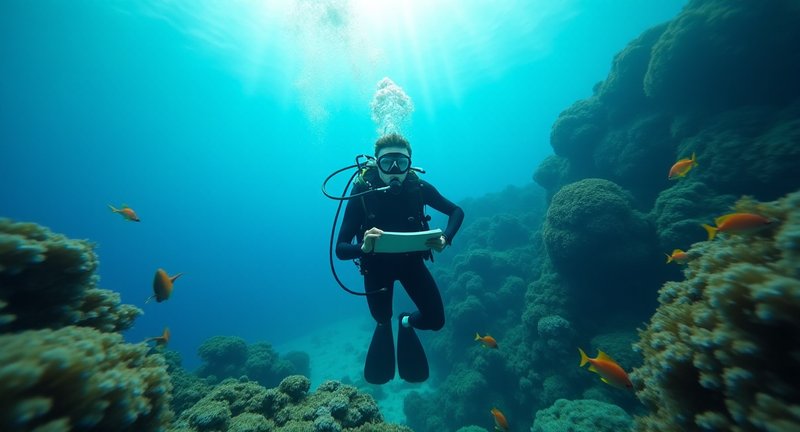
The Importance of Professional Training
Concerning scuba diving, the value of professional training cannot be overstated. As someone who has plunged into the depths of the ocean, I can tell you that acquiring an Open Water Scuba Diving License isn’t just about getting certified; it’s about unlocking a world of adventure and safety.
Here’s why professional training is essential:
-
Safety First: Diving involves risks, but with proper training, you’ll learn how to mitigate them. Understanding the equipment and emergency protocols can be a lifesaver.
-
Skill Development: You’ll master essential techniques, from buoyancy control to navigation. Imagine gliding effortlessly underwater, like a fish in its natural habitat!
-
Confidence Building: Diving in unfamiliar waters can be intimidating. Professional training helps build your confidence, making every dive enjoyable rather than stressful.
-
Environmental Awareness: A good instructor will teach you about marine ecosystems and how to protect them. Trust me, knowing how to respect the underwater environment adds a layer of richness to your dives.
-
Community Connection: Training introduces you to fellow enthusiasts. The friendships formed during those exhilarating underwater excursions can lead to lifelong memories and future diving adventures.
If you’re still contemplating whether to pursue that Basic scuba diving certification, consider this: it’s not just a ticket to dive; it’s a passport to an entirely new realm. Each dive is an opportunity to explore, learn, and connect with nature in a profound way. So, gear up, take the plunge, and let the underwater world enchant you!
Key Skills Developed During Certification
Embarking on the adventure of certification in scuba diving was like stepping into a whole new world. I remember the thrill of learning essential skills that would transform me from a landlubber into an underwater explorer.
The first skill that stood out was buoyancy control. It’s a delicate dance of adjusting your breathing and gear to glide through the water like a fish. The sensation of hovering just above the ocean floor was exhilarating, and it felt like I was defying gravity.
Next came the art of equipment management. Familiarizing myself with the intricacies of diving gear felt a bit like solving a puzzle. Each piece had its place, and understanding how to assemble and maintain them gave me a sense of confidence I hadn’t anticipated.
Communication underwater also became second nature. Using hand signals felt almost like developing a secret language. I could convey everything from “I’m okay” to “let’s ascend” without a single word, and that bond with my dive buddy made the experience even more enriching.
Moreover, I discovered the importance of situational awareness. The ocean is full of surprises, and staying alert to my surroundings was crucial for safety. Whether it was avoiding a curious sea turtle or recognizing the signs of a strong current, this skill proved vital.
Also, mastering emergency procedures was a game-changer. Practicing scenarios like sharing air or managing a sudden ascent provided peace of mind. Knowing I could respond effectively in unexpected situations was empowering.
Also, my certification journey was filled with fascinating skills that enhanced my diving experience. Each one added a layer of confidence and joy to my underwater adventures, making every dive feel like a new chapter in my exploration story.
Choosing the Right Dive School
Choosing the right dive school is like selecting the perfect partner for an underwater dance; it can make all the difference in your experience. From my own adventures beneath the waves, I’ve learned that not all dive schools are created equal. Here are some key points to consider when making your choice:
-
Reputation Matters
Research is crucial. Read reviews, talk to fellow divers, and seek recommendations. A school with a stellar reputation often has a wealth of experience to share. -
Instructors’ Credentials
Ensure that the instructors are certified and have significant teaching experience. Their passion for diving should be evident, as a great instructor can transform your learning journey. -
Class Size
Smaller groups often mean more personalized attention. A good instructor-to-student ratio allows for better guidance and safety, especially when you’re just starting. -
Location and Facilities
Check the school’s amenities. Are the rental gear well-maintained? Is the training pool spacious enough for practice? The right environment can make your training feel more enjoyable and less stressful. -
Safety Standards
Ask about the dive school’s safety protocols. A reputable school will prioritize safety above all, with clear emergency procedures and well-equipped boats. -
Diverse Course Offerings
A good dive school should offer various courses, from beginner to advanced levels. This flexibility allows you to grow and explore different diving specialties as your skills develop.
Remember, diving is about more than just learning techniques; it’s about embracing the ocean’s beauty and mysteries. Trust your instincts and choose a dive school that resonates with your spirit of adventure!
What to Expect During Your Training
During your training, expect to dive headfirst into a world teeming with aquatic wonders. The anticipation builds as you gather gear, donning fins and masks that will soon transport you into a liquid wonderland.
The thrill of learning new skills is palpable. Each lesson brings you closer to mastering buoyancy control and understanding the intricacies of underwater communication. It’s not just about the mechanics; it’s about connecting with the ocean’s rhythms.
In the pool, you’ll practice essential skills that can feel a bit awkward at first. But trust me, by the end of the training, you’ll move through the water with the grace of a dolphin, feeling the fluidity of your movements.
The classroom sessions are equally engaging. You’ll dive into the science behind diving learning about the effects of pressure and how to read dive tables. Each nugget of knowledge is a stepping stone toward confidence.
The open water sessions, ah, that’s where the magic truly happens. Surrounded by a world of color, you’ll forget about everything above the surface. Your heart races as you descend, and a sense of tranquility envelops you.
Don’t be surprised if you find yourself bonding with fellow trainees. Shared experiences, like encountering a curious turtle or navigating a sudden current, create lasting connections.
This journey is as much about personal growth as it is about mastering diving techniques. So gear up and get ready for an adventure that will change your perspective forever.
Essential Equipment for New Divers
When I first dipped my toes into the world of diving, the array of gear felt overwhelming. But trust me, investing in the right equipment can transform your underwater escapades into unforgettable adventures.
Let’s start with the essentials: a well-fitting wetsuit. This isn’t just a fashion statement; it’s your protective armor against chilly waters and pesky marine life. Make sure it hugs your body snugly think of it as a second skin, providing warmth and flexibility during your explorations.
Next on the list is a reliable dive computer. This nifty gadget tracks your depth and time, making sure you don’t stay underwater longer than you should. I remember my first dive, feeling like a high-tech astronaut, monitoring my stats while gliding through coral gardens.
Then there’s the mask and snorkel, your window to the wonders below. A good mask creates a watertight seal, allowing you to focus on the vibrant sea life without the nagging annoyance of leaks. A sturdy snorkel is your breath of fresh air literally! It lets you take in the sights without surfacing too often.
Don’t forget a sturdy pair of fins. They help you swim gracefully through the water, giving you that effortless glide like a dolphin. I can’t stress enough how much fun it is to feel like you’re flying underwater, propelled by these little flippers.
Also, a buoyancy control device (BCD) is essential. It allows you to adjust your buoyancy effortlessly. Imagine floating weightlessly, adjusting your position with just a flick of a switch pure magic!
So gear up and prepare for an adventure that will leave you breathless, in more ways than one!
The Role of Pool Sessions in Training
Training in the world of scuba diving often begins in the comforting embrace of a pool. Picture this: you’re submerged in tranquil waters, the sunlight glimmering through the surface, casting playful patterns on the tiles below. Pool sessions are not just about splashing around; they serve as the foundation for your underwater adventures. Here’s why these sessions are essential:
-
Skill Mastery: In the pool, you can focus on mastering essential skills without the distractions of the ocean’s vastness. It’s the perfect place to practice buoyancy control, regulator clearing, and mask skills. Trust me; there’s nothing quite like conquering those skills in a controlled environment before facing the unpredictable ocean.
-
Confidence Building: The serene atmosphere of a pool allows you to build your confidence. Each skill you master, each bubble you exhale, adds to your sense of assurance. You’ll emerge from these sessions ready to take on more challenging dives.
-
Equipment Familiarization: Diving gear can be intimidating at first. Pool sessions offer an opportunity to familiarize yourself with your equipment how it feels, how it works, and how to troubleshoot any issues. It’s like having a dress rehearsal before the big performance.
-
Safety First: Safety is paramount in diving. Pool training allows you to learn safety protocols in a low-stakes environment. You’ll develop the instincts necessary to respond calmly to challenges that may arise underwater.
So, whether you’re just dipping your toes in or diving deeper into your training, never underestimate the power of those pool sessions. They’re the perfect prelude to your underwater odyssey, giving you the skills and confidence to explore the enchanting underwater world.
Completing Open Water Dives: A Thrilling Experience
Completing open water dives is an exhilarating adventure like no other. I still vividly remember my first descent into the crystal-clear waters, where the world above faded away and a new, almost alien world unfolded before me. The thrill of being underwater, breathing deeply through your regulator, and feeling weightless it’s a sensation that’s hard to describe but impossible to forget.
The experience of completing those open water dives can feel both nerve-wracking and liberating. It’s about pushing boundaries and discovering an entirely new environment that’s been hiding beneath the waves, just waiting for you. Here are some key elements that made the dives so thrilling for me:
- Stepping Into the Unknown: Each dive is an exploration of uncharted territory, no matter how many times you’ve suited up before. You never know exactly what kind of marine life you’ll encounter, and that adds a spark of excitement.
- The Silence: Underwater, there’s a deep quiet that you can’t find anywhere else. It’s just the soft rhythm of your own breath and the occasional crackle of underwater life a soothing soundtrack that helps you focus and take in every moment.
- Mastering Control: Feeling yourself hover in place, perfectly balanced, is a game-changer. You start learning to move with minimal effort, using just a flick of your fins. That sense of control amplifies the thrill.
- Connection to Nature: There’s something incredibly humbling about swimming alongside creatures that have existed for millennia. Whether it’s spotting a graceful sea turtle or watching a school of fish move in harmony, the connection to the underwater world feels pure and powerful.
So if you’re considering completing your open water dives, I can tell you this it’s a journey of self-discovery and a heart-pounding thrill that stays with you long after you’ve surfaced.
Most Asked Questions
How many dives do you need for open water certification?
To earn an Open Water certification, you generally need to complete four open water dives, usually conducted over a couple of days. These dives allow you to apply the skills you’ve learned in confined water or pool sessions to real-world conditions, under the supervision of an instructor. These dives are essential for practicing essential safety skills, buoyancy control, and underwater navigation, preparing you to dive independently after certification.
What does open water scuba certified mean?
Being open water scuba certified means that you have completed a comprehensive diving course that includes both theoretical knowledge and practical skills. The certification allows you to dive without professional supervision to a depth of 18 meters (60 feet). It’s a globally recognized credential, often issued by organizations like PADI or NAUI, that validates your competency in basic scuba diving safety, equipment usage, and underwater communication.
How hard is the open water diver exam?
The Open Water Diver exam is not particularly difficult if you’ve paid attention during the course. It typically covers basic diving principles, safety protocols, equipment usage, and emergency procedures. The exam includes multiple-choice questions, and most people find it manageable with the right preparation. The practical skills portion, where you demonstrate what you’ve learned during training dives, may be more challenging for some, but instructors guide you throughout.
How long does open water diver course take?
The Open Water Diver course typically takes about three to four days to complete, though this can vary depending on your schedule and the dive school. The course includes knowledge development, confined water dives, and open water dives. Many programs offer flexible options, allowing students to complete the knowledge portion online or over a weekend, while the practical components are usually completed in consecutive days.
How much does PADI Open Water cost?
The cost of a PADI Open Water certification can vary depending on location, but it typically ranges between $300 to $600. This fee often includes classroom materials, equipment rental, confined water training, and open water dives. In some cases, additional costs for certification fees or equipment rental may apply. It’s advisable to compare prices at local dive shops or schools to find a package that fits your budget.
Can you dive alone with open water certification?
No, an Open Water certification does not qualify you to dive alone. Most dive organizations, including PADI, recommend always diving with a buddy for safety reasons. The buddy system allows divers to help each other in case of emergencies or equipment issues. If you want to dive solo, additional certifications, like the PADI Self-Reliant Diver course, are required to develop the skills and mindset necessary for solo diving.
How deep can an open water diver go?
An Open Water diver is certified to dive up to a depth of 18 meters (60 feet). This depth is considered safe for recreational divers with entry-level certification. If you want to explore deeper waters, you’ll need to take additional training, such as the Advanced Open Water Diver course, which allows you to dive to depths of up to 30 meters (100 feet) and includes specialized deep dive training.
Is PADI Open Water worth it?
Yes, getting a PADI Open Water certification is worth it if you’re passionate about diving and want to explore underwater environments safely. This globally recognized certification not only allows you to dive at numerous dive sites around the world but also ensures that you’ve been trained in essential safety procedures and dive skills. It’s a great investment for both recreational divers and those considering further professional diving opportunities.
What’s the difference between a scuba diver and an open water diver?
The primary difference between a scuba diver and an open water diver lies in their certification levels and limitations. A Scuba Diver certification is more restrictive, allowing dives only to a depth of 12 meters (40 feet) and always under professional supervision. In contrast, an Open Water Diver certification offers more independence, permitting dives to a maximum depth of 18 meters (60 feet) without the need for a guide, though a buddy is still required.



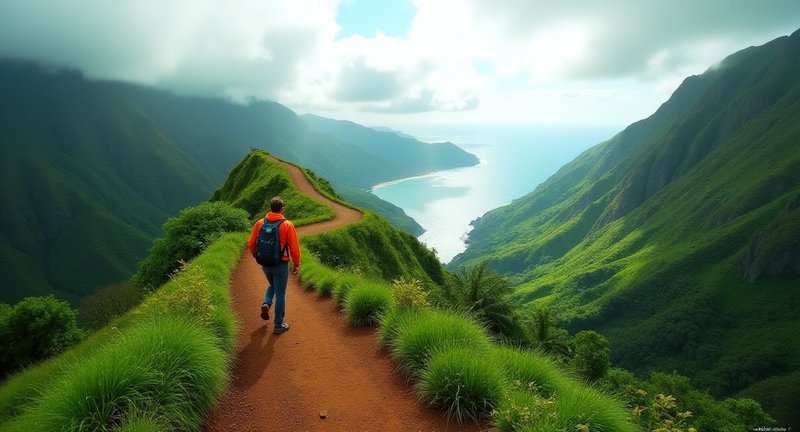
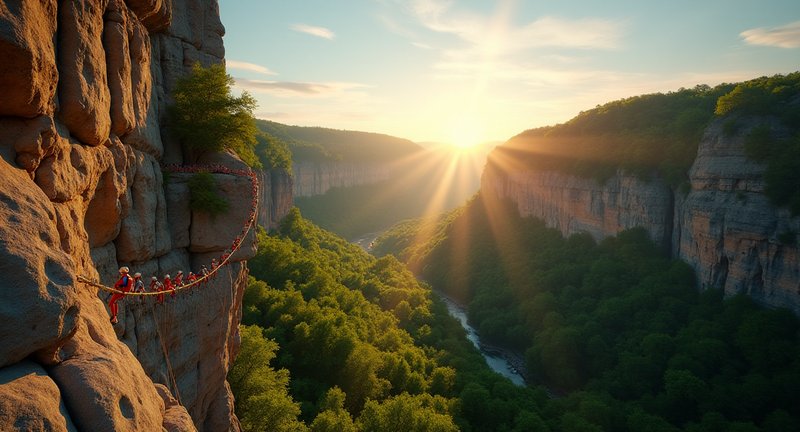
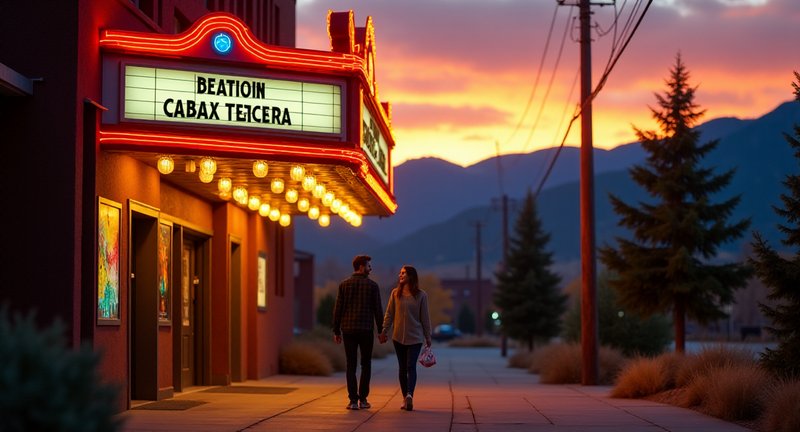


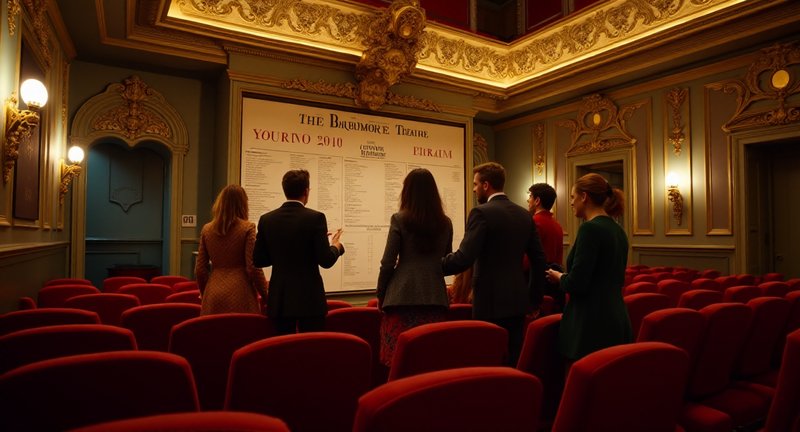


I absolutely love how you described the transformation from landlubber to underwater explorer! Buoyancy control was one of my favorite aspects of getting certified too; there’s something almost magical about floating effortlessly above the ocean floor. I still remember the first time I nailed it felt like I was dancing with the fish! It’s incredible how mastering these skills not only boosts your confidence but also allows you to truly connect with the underwater world. The secret language of hand signals is another highlight for me! It’s so empowering to communicate without words, making every dive feel like a shared secret between you and your buddy. I also appreciate the emphasis on situational awareness; it really is crucial for safety. Encountering a sea turtle is a delightful surprise, but being prepared for the unexpected makes the experience even more enjoyable. Your journey through certification sounds inspiring, and I can’t wait to read more about your un
You’re spot on about the value of professional training in scuba diving! My instructor emphasized the importance of safety, which really shaped my approach to the sport. Learning about emergency protocols and how to use equipment properly made my first dive feel so much safer. Plus, mastering skills like buoyancy control felt amazing! I now glide through the water effortlessly, like a graceful sea creature. Not to mention, the friendships I’ve built with fellow divers have added so much joy to my diving adventures. I love hearing about everyone’s unique underwater experiences it’s like we all share a secret world! For anyone considering getting certified, just dive in! It’s a wonderful journey that opens up a world of adventure and environmental appreciation.
Oh wow, reading about the diving certification process brings back so many memories! I remember feeling both excited and a bit nervous during my own training. The knowledge development phase was fascinating; I loved learning about pressure changes and how they affect our bodies. And the confined water training? That’s where I finally learned how to control my buoyancy, which is essential for enjoying the open water dives. I still can’t forget my first real dive; gliding alongside a giant sea turtle felt like a dream come true! Plus, connecting with other divers during the training was a blast. We shared tips and hilarious stories that I still laugh about today. Anyone who’s on the fence about getting certified should definitely go for it it’s an investment in incredible adventures and unforgettable experiences!
I totally agree with the importance of being medically fit before diving! I once had to get a doctor’s clearance due to a mild condition, and it gave me peace of mind as I descended into the blue. The thrill of diving is absolutely worth the prep work. Also, making it a family affair sounds fantastic! I remember my first dive with my younger sibling, and it was one of our best bonding experiences. Respecting the ocean is key; after all, we’re just guests in their magnificent underwater world!
Diving truly is a magical experience! Your description of stepping into another realm resonates so much with me. I felt a mix of thrill and nervousness on my first dive too, and it quickly transformed into awe as I explored vibrant coral reefs. It’s like being in an entirely different world where gravity takes a backseat! I love how you pointed out the importance of respecting our oceans. Each dive makes me appreciate the delicate balance of marine ecosystems, especially during encounters with incredible creatures like sea turtles. It’s moments like those that remind us why we need to protect these underwater habitats. I also appreciate the role of instructors having someone experienced guiding you through makes all the difference. They not only teach but also inspire respect and wonder for the ocean. For anyone hesitating, I wholeheartedly echo your sentiment: just dive in! There’s an incredible journey waiting beneath the waves.
Your enthusiasm for diving certification is contagious! I couldn’t agree more that it’s a transformative experience. I remember the first time I felt truly comfortable in the water, thanks to all those safety protocols I learned. It’s fascinating how proper buoyancy control and emergency procedures can change your entire perspective on diving. It’s not just about enjoying the beauty below but doing so responsibly and safely. Plus, the thrill of encountering vibrant marine life is unparalleled! I still recall my first dive with a school of fish, their colors popping against the deep blue. And let’s not forget the community aspect you build lifelong friendships with fellow divers who share that same spark of adventure. It’s heartwarming to think about how diving can connect people from all walks of life. Every dive is a new adventure, and I’m excited for the endless opportunities ahead! Let’s keep exploring the ocean together!
I completely resonate with your thoughts on scuba diving certification being a true passport to adventure! When I first got certified, I felt like a kid discovering a treasure chest full of wonders. The classroom sessions might seem a bit dry, but they really lay the foundation for everything else. I remember being completely mesmerized during my first pool session, feeling the weightlessness and realizing that I could breathe underwater. It’s a sensation that words can’t quite capture! And when you finally make that leap into the open water, it feels surreal like you’re part of a movie set in an enchanting underwater world. Each dive afterward has its own story, filled with incredible encounters and lessons learned. It’s just the beginning of a lifelong journey, and I can’t wait to see where my next dive takes me!
That nervous excitement before your first dive is so real! It’s funny how quickly you go from feeling anxious to feeling like you’re exactly where you belong. The ocean is both calming and exhilarating. You’re right – taking your time is key. Once you build that confidence, each dive feels like stepping into another world. It’s worth the patience for sure!
The way you describe the learning process really resonates with me. Diving is not just another hobby; it’s a transformation, like you said. I remember my first time learning to control my breathing – it felt so unnatural at first, but it’s amazing how quickly you adapt. And you’re right, the ocean truly becomes your teacher, with each dive bringing new lessons. The final test felt more like a victory lap for me too. It’s not about passing; it’s about realizing how far you’ve come. The connection to the ocean is undeniable!
I totally relate to that feeling of taking your first breath underwater! It’s such a wild experience to trust the regulator and realize you’re doing something that would normally be impossible. I still remember the weightlessness and how cool it was to feel like I was flying in slow motion with buoyancy control. That open water dive description gave me chills – there’s something magical about seeing the world from under the surface, especially when you know you’ve worked for it.